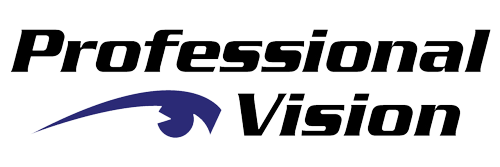
Your eyes are often called the “windows to the soul,” but they are also powerful windows into your overall health. Many people think of eye exams as a way to check if they need glasses or contact lenses, but a comprehensive eye exam can uncover much more. In fact, many severe health conditions can be detected through the eyes.
At Professional Vision, we believe eye exams are essential for maintaining healthy vision and understanding your overall health. With two convenient locations in Carney and Timonium, our team can help you stay proactive about your health.
What Is a Comprehensive Eye Exam?
A comprehensive eye exam is more than just reading letters on a chart. It’s an in-depth evaluation of your visual acuity, eye coordination, and the health of your eyes' internal and external structures. Our eye doctors can use advanced diagnostic tools to detect potential vision problems and early signs of other health conditions.
During your comprehensive eye exam, we will:
- Assess your vision and check for nearsightedness, farsightedness, astigmatism, and presbyopia.
- Evaluate how your eyes work together, ensuring proper eye coordination and depth perception.
- Conduct a detailed examination of your retina, optic nerve, and blood vessels.
- Measure your eye pressure to screen for glaucoma.
Eye Exams and Other Health Conditions
But beyond these standard checks, a comprehensive eye exam can offer insights into your overall health.
Detecting Diabetes
Diabetes is a condition that affects how your body processes blood sugar, and it can have a significant impact on your eyes. One of the earliest indicators of diabetes is diabetic retinopathy, a condition where high blood sugar levels damage the blood vessels in the retina. During a comprehensive eye exam, we can detect early signs of this eye condition—often before any symptoms appear.
Diabetic retinopathy may present as small hemorrhages, swelling, or abnormal blood vessel growth in the retina. Early detection through a comprehensive eye exam allows for prompt treatment, helping to prevent vision loss and managing the broader effects of diabetes on your body.
Hypertension (High Blood Pressure)
High blood pressure, also known as hypertension, is another condition that can be uncovered through a comprehensive eye exam. The blood vessels in your eyes are sensitive to changes in blood pressure. When blood pressure is elevated, it can cause damage to the vessels in the retina—a condition known as hypertensive retinopathy.
During an exam, our optometrists may notice narrowed or leaking blood vessels or even swelling in the optic nerve. While these signs may not cause immediate vision problems, they can indicate uncontrolled high blood pressure, which can lead to more serious health risks like heart disease or stroke.
Autoimmune Disorders
Autoimmune disorders, like lupus, multiple sclerosis (MS), or rheumatoid arthritis, can also present symptoms in the eyes. For example, inflammation in the eye (known as uveitis) is a common symptom of autoimmune conditions, often causing redness, pain, or blurred vision.
During your comprehensive eye exam, we check for signs of eye inflammation, optic nerve damage, or unusual eye movements—all of which can be early indicators of autoimmune conditions. Early detection of these symptoms can lead to quicker diagnoses and more effective management.
Cholesterol Levels
Believe it or not, your eye exam can also provide clues about your cholesterol levels. Deposits of cholesterol can accumulate in the blood vessels of your eyes, particularly in the form of a corneal arcus, a white or gray ring around the cornea. While this ring is more common in older adults, it can appear in younger individuals with high cholesterol levels.
Elevated cholesterol levels can increase your risk of heart disease and stroke, so noticing these signs during an eye exam can help protect your cardiovascular health.
Neurological Conditions
The health of your optic nerve can tell us a lot about your neurological health. Conditions like multiple sclerosis and brain tumors may present as changes in the optic nerve or abnormal eye movements. During a comprehensive eye exam, we use specialized tools to assess the health of your optic nerve and check for signs of swelling, atrophy, or abnormal pressure within the skull.
Take Control of Your Health—Book an Eye Exam!
If you haven’t had a comprehensive eye exam recently, now is the perfect time to schedule one. At Professional Vision, we aim to provide you with more than just a prescription—we want to partner in your overall health journey. Early detection and prevention are the keys to maintaining your vision and well-being.
We encourage you to take a proactive step toward better health by visiting us in Carney and Timonium, MD. Whether you’re due for an annual check-up or experiencing changes in your vision, our team is here to help.

